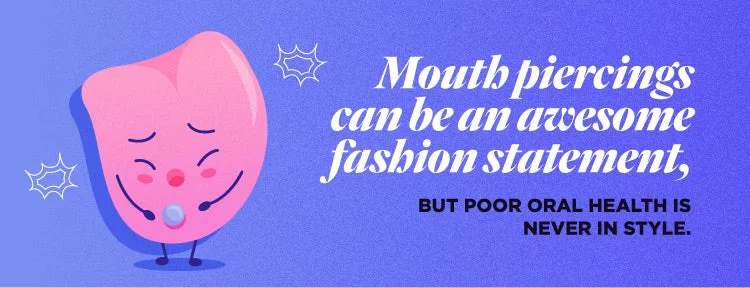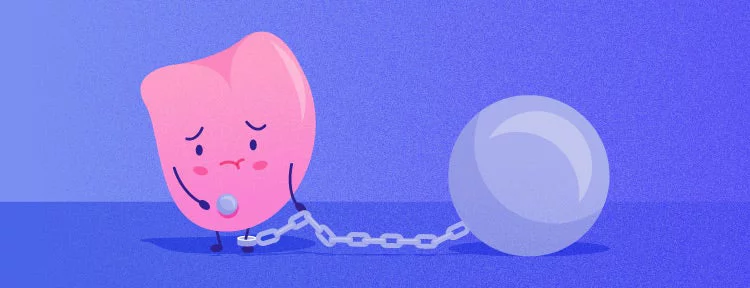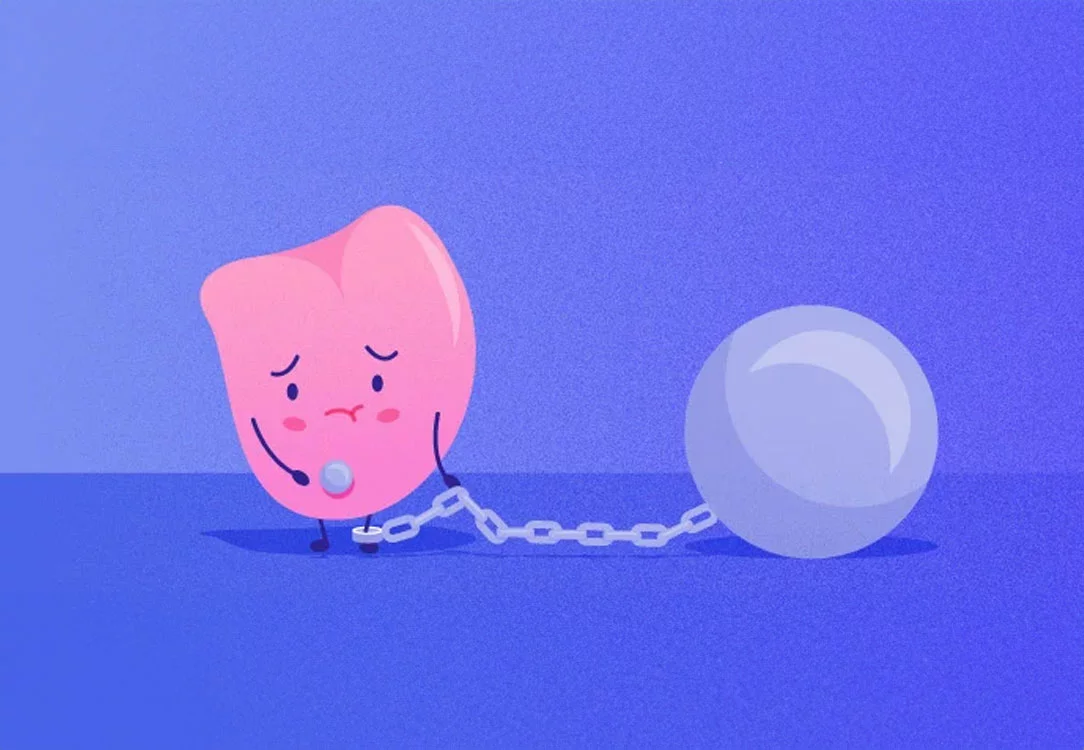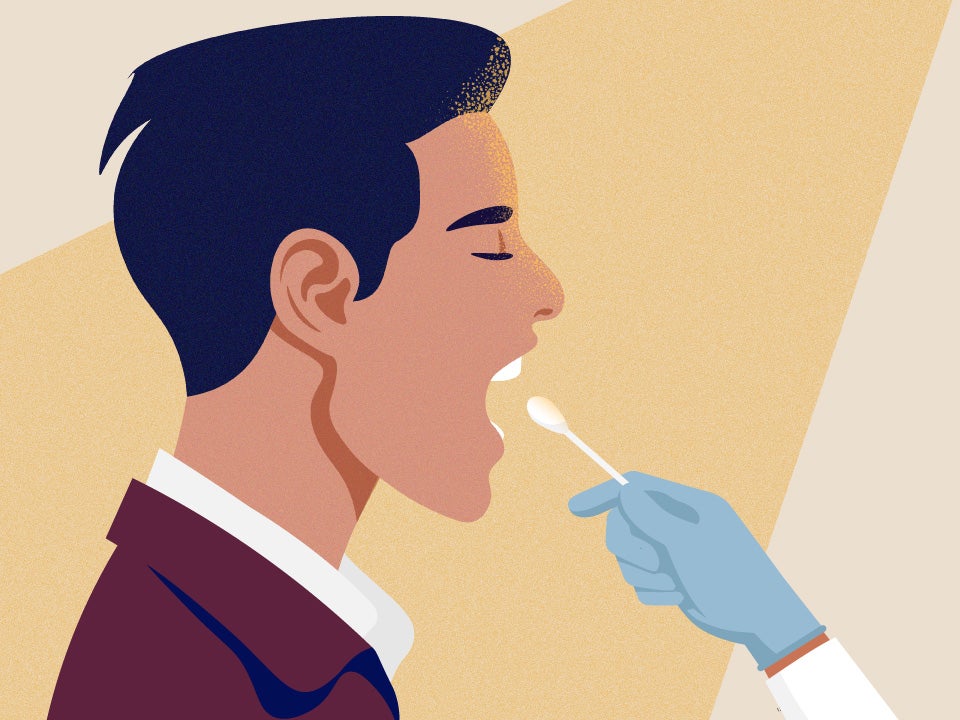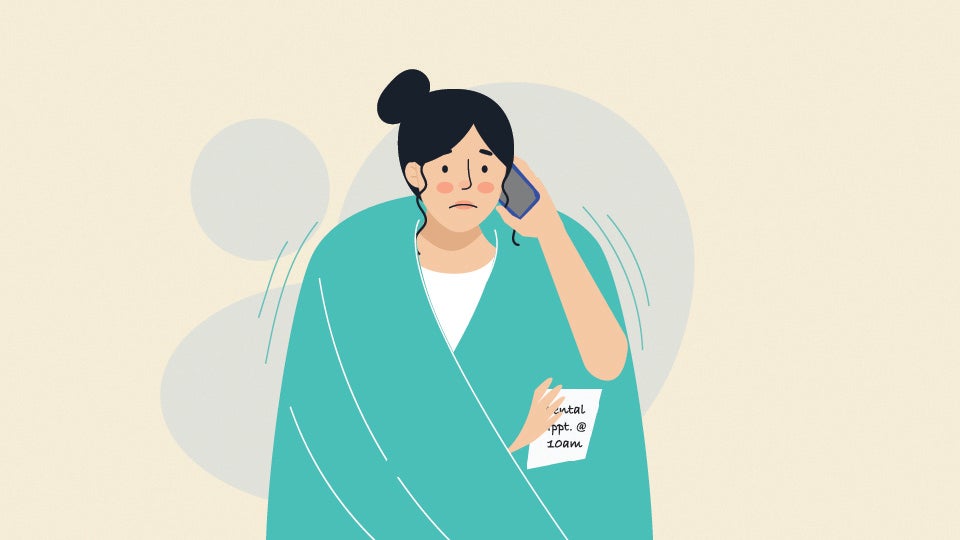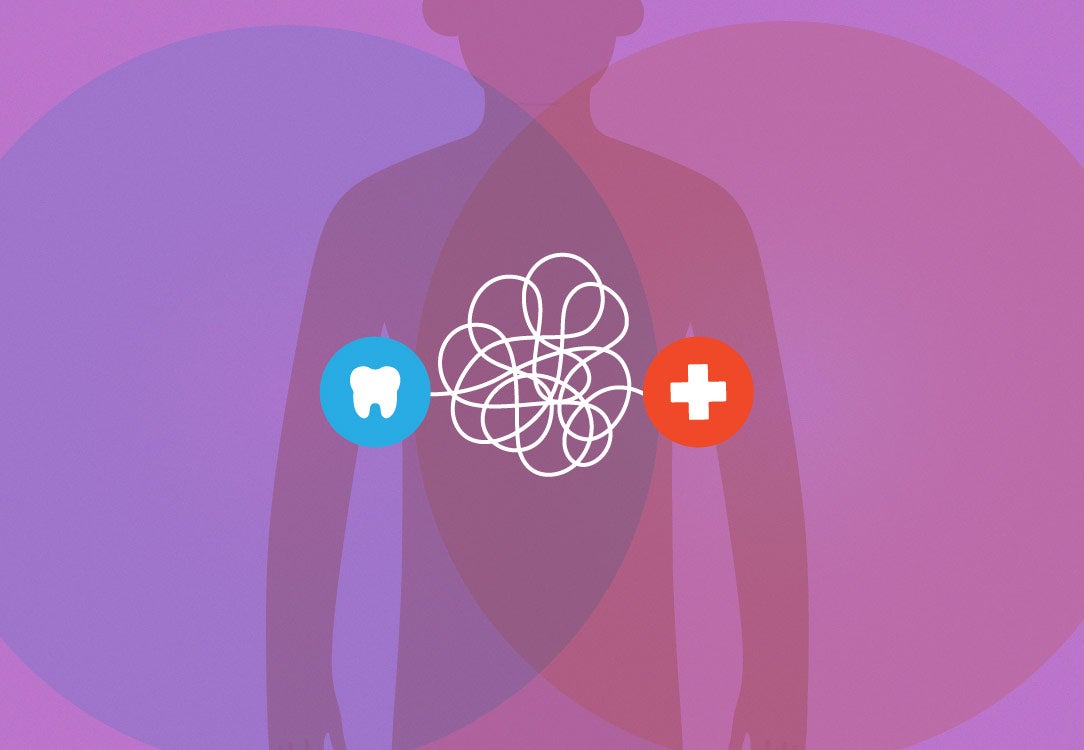While tongue or lip piercing may be a popular fashion statement, it is important to be aware of the negative health risks associated with mouth piercings so you can avoid them at all costs. Knowing how to properly clean the piercing during the healing process and what activities could increase the risk of swelling or infection will help to decrease your chances of compromising your oral health.
How Can Mouth Piercings Affect Oral Health?
Anytime there is an open wound in the skin, regardless if it is an intentional opening like a piercing, there is a risk of bacteria getting in and causing an infection. While mouth injuries can heal relatively quickly, having an oral piercing can still have complications if it is not tended to properly.
Bacteria can wreak havoc on your oral and overall health. Be sure to thoroughly clean your mouth before you get it pierced with antiseptic mouthwash, and continue to keep it clean after you get it pierced, especially during the first week after piercing. If you do not thoroughly clean a newly pierced tongue or cheek piercing, bacteria will infect the piercing, causing:
- Swelling, possibly affecting breathing
- Throbbing pain
- Discharge
- Fever
Even without the side effects of an infection, having a mouth piercing can negatively impact your oral health in several ways, such as:
- Chipping your teeth while you eat
- Causing a deep break, leading to a root canal or loss of tooth
- Damaging your tongue
- Damaging your gums, leading to gum disease
- Damaging your fillings
- Making it hard to speak, chew, and swallow
- Causing an allergic reaction to the jewelry
- Causing thrush
There are many different types of oral piercings available for the tongue, lips, gums, and other places in and around the mouth. It is even possible to pierce the uvula, which is the little hanging down a piece of skin in the back of your throat.
The most popular way to have your tongue pierced involves a single piercing straight through the center of the tongue, called a midline piercing. Surprisingly, the pain associated with a classic tongue piercing is relatively low because there is no skin or cartilage to push through.
However, a midline tongue piercing is not the only way to have your tongue pierced. Instead of a classic piercing, you can also have your tongue pierced horizontally, called a surface piercing, where both entry and exit points of the piercing are on the same surface of your tongue.
Lip piercings can be either a classic piercing that goes through the lip or a surface piercing where two ends of the piercing jewelry horizontally sit on the lips. A danger of lip piercings is that the metal in the mouth can rub against your gums and irritate the skin. This irritation of broken skin can allow bacteria to enter, leading to gum disease.
Separate from a lip ring, the labret piercing goes through just under your lower lip. Many nerves can be found in your lips, which can be painful when piercing, but piercing below the lip can be less painful.
A mandibular piercing happens deep under the tongue and comes out under your chin. This will appear like a surface chin piercing, although it is pierced through your mouth.
Gum piercings include piercing the frenulum, which is the attached skin between your lip and the gums. If your top frenulum is pierced, it is called a smiley piercing, while its counterpart on your bottom lip and gums is called a frowny piercing.
Piercing the gums can lead to gum recession and gum disease because bacteria get in the gums through open wounds.
In most cases, a tooth piercing is not what it sounds like. It is never a good idea to drill a hole into your teeth. Getting a tooth piercing involves having a piece of jewelry embedded in a small amount of glue-like composite placed on the surface of your teeth. In some cases, your dentist will place this jewel for you.
Some people have a hole drilled into their teeth to attach a piece of jewelry. This is highly advised against because it will permanently damage your teeth.
Are Tongue Piercings Safe?
If you take care of your tongue piercing while it is healing and avoid anything that could harm the tongue or delay the healing process, it is certainly possible to have a safe tongue piercing. But not adhering to proper care after getting your tongue pierced can lead to a more painful and potentially dangerous experience.
Why are Tongue Piercings Dangerous?
The tongue may swell when a new tongue piercing isn't tended to or cleaned well. If the swelling is not dealt with in a timely manner, it is possible that the swollen tongue could block your airways.
Tongue piercing can potentially go through veins in the tongue, leading to a possibility of excessive bleeding. Choosing a professional piercer who has plenty of experience with tongue piercings is essential. An experienced piercer can assess your tongue to know where the veins are so they can be avoided when piercing your tongue.
Allergic reactions to the jewelry can also lead to swelling and general irritation. Using gold, titanium, or surgical steel is highly recommended to reduce the possibility of having an allergic reaction after getting your tongue pierced.
Tongue Piercing Healing Process
After the tongue is pierced, expect your tongue to be slightly swollen and tender for at least the first day or two, though this can be the case for up to ten days. It may even be red or bruised at this time. If you see signs of infection that include discharge, discoloration, continued swelling, or irritation after the first week, and it appears to be getting worse, it is time to see a doctor.
Oral piercings usually take between 3 to 4 weeks to heal. Bacteria are a huge contributor to a slower healing process. Following the aftercare instructions and keeping your tongue piercing clean will promote a faster healing time.
Tongue Piercing Aftercare
When you have your tongue pierced, cleanliness is a constant concern. To significantly reduce the potential for infection, rinse your mouth with sea salt water or a non-alcoholic mouthwash two or three times a day. Eat gently until the piercing is completely healed by eating soft, mild foods.
What Can't You Do With a Tongue Piercing?
While your tongue is healing, do not:
- Share food
- Use straws
- Smoke
- Eat spicy foods
- Consume hot foods or drinks
- Consume dairy because it promotes bacteria growth
- Kiss
What To Do with an Infected Tongue Piercing
If your tongue becomes infected and rinsing with salt water does not help, contact your doctor or your dentist. Eliminating the infection is crucial so your tongue piercing can fully heal. Infection can cause swelling and can even spread throughout your mouth, causing extensive damage if left untreated.
If you choose to have a mouth piercing, be sure to ask the piercing professional several questions about their experience and what they personally recommend to do during the healing process. Follow their tongue piercing aftercare instructions carefully to avoid adverse effects from infection.
Another way to safeguard yourself against having your teeth and gums damaged from an oral piercing is to see your dentist regularly. A trusted dentist can bring the wear and tear caused by your oral piercings to your attention. If you are looking for a dentist in your community, try Smile Generation's Find a Dentist tool to pull up lists of local dentists recommended by other patients in your area.
Find your trusted, local dentist today!
- WebMD. (n.d.). Oral piercings: Risks, complications, and care tips. Retrieved September 10, 2024, from https://www.webmd.com/oral-health/guide/oral-piercing
- Offen, E., & Allison, J. (2022). Do oral piercings cause problems in the mouth? Evidence-Based Dentistry, 23(3), 126–127. https://doi.org/10.1038/s41432-022-0816-z
Smile Generation blog articles are reviewed by a licensed dental professional before publishing. However, we present this information for educational purposes only with the intent to promote readers’ understanding of oral health and oral healthcare treatment options and technology. We do not intend for our blog content to substitute for professional dental care and clinical advice, diagnosis, or treatment planning provided by a licensed dental professional. Smile Generation always recommends seeking the advice of a dentist, physician, or other licensed healthcare professional for a dental or medical condition or treatment.
